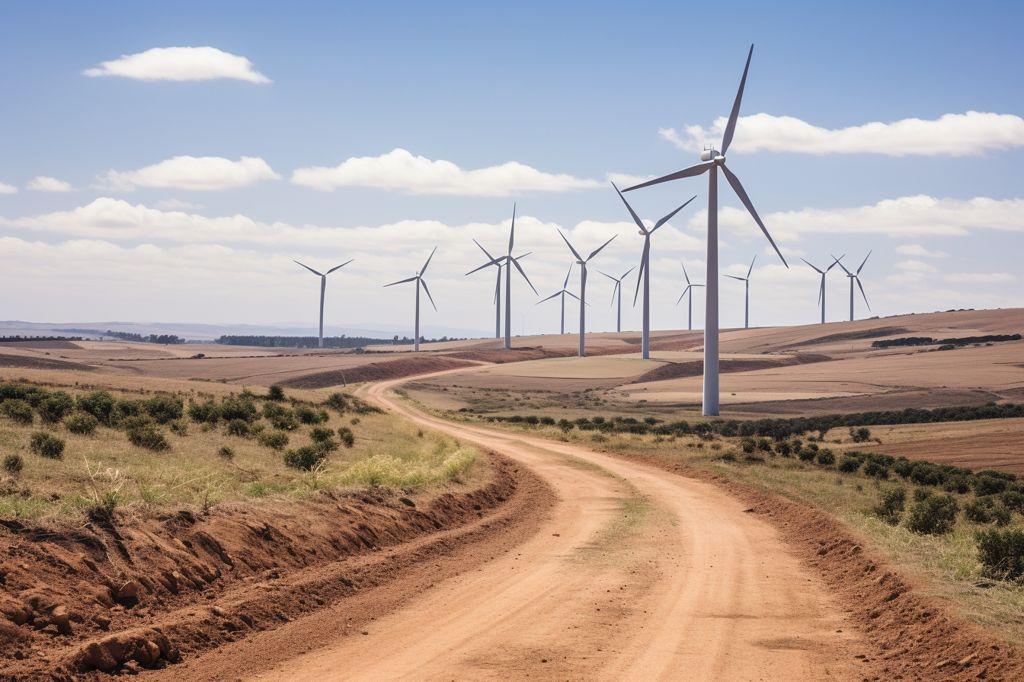South Africa’s Carbon-Intensive Economy: Challenges and Opportunities
South Africa is currently grappling with the task of lowering its carbon intensity, given its strong dependence on fossil fuels and significant greenhouse gas emissions. Nevertheless, the nation’s dedication to the Just Transition Framework displays its commitment to shifting towards a low-emissions and climate-resilient economy while ensuring fairness and inclusiveness. This article delves into the present condition of South Africa’s carbon-intensive economy, the initiatives being undertaken to decarbonize, and the crucial role of international cooperation in reaching these objectives.
South Africa’s high carbon intensity presents both difficulties and potential for decarbonization. The nation is responsible for 1.2% of worldwide greenhouse gas emissions, with CO2 emissions from the energy sector rising from 451.58 million tonnes in 2015 to 478.61 million tonnes in 2019. This positions South Africa as the 12th largest CO2 emitting country. The power sector is the most significant contributor, followed by the energy and transport sectors, with respective contributions of 47%, 16.7%, and 11.7%.
The substantial dependence on coal in South Africa’s energy mix exacerbates the carbon intensity of domestically produced goods. For instance, the carbon intensity of steel production in 2016 was 2,295.1 kgCO2/tonne product, surpassing the global average of 1,900 kgCO2/tonne product. This leaves South African steel exports vulnerable to potential punitive carbon tax measures from trading partners.
National Strategies and the Just Transition Framework
In response to these challenges, South Africa has instituted several national strategies to boost renewable energy and transition away from a fossil fuel-centric economy. The Just Transition Framework acts as a guiding principle for the nation’s endeavors, concentrating on funding renewable energy and technological advancements.
Distributive justice, one of the three principles underpinning the Just Transition Framework, can be exemplified in South Africa through the following steps:
-
Providing South Africans with the skills, assets, and opportunities needed to engage in future industries, particularly focusing on affected groups, the poor, women, individuals with disabilities, and the youth.
-
Enacting transformative national economic and social policies that take into account the distribution of benefits and burdens, including job gains, job losses, and the quality and longevity of future employment.
-
Enhancing provincial and local capacity (both resources and skills) to encourage local economic development.
-
Ensuring corporate accountability to promote a green and inclusive economy.
The move to a low-carbon economy in South Africa is anticipated to result in the loss of around 300,000 jobs but generate approximately 815,000 new jobs up to 2050. Although job losses may occur in high-emissions sectors such as coal and petroleum, a net gain in mining-related employment is expected due to the rising demand for energy minerals and metals necessary for cleaner energy sources.
The Importance of International Collaboration
South Africa recognizes the vital role of global cooperation in supporting its decarbonization efforts, acknowledging that achieving a net-zero emission scenario could be delayed by decades without increased collaboration. This highlights the need for collective action from governments around the world to intensify their climate pledges and commitments.
Collaboration, investment, and innovation can transform climate commitments into actionable interventions, ultimately contributing to a fair and just net-zero carbon emission scenario by 2050. A just global energy funding regime is essential for ensuring equitable and affordable access to financing that advances interventions to achieve net-zero emissions.
International cooperation can enable a swifter, more cost-effective, and smoother transition to net-zero. Furthermore, collaboration can hasten shared innovation and technology deployment, support common international standards, and foster joint approaches to create a level playing field for trading low-emission goods.
To maximize these advantages, collaboration in the identified energy-intensive sectors should be inclusive, well-organized, and facilitate interaction between governments, businesses, and civil society. South Africa’s commitment to a just transition to a low-emissions economy and its emphasis on international cooperation offer a promising model for other countries striving to balance decarbonization, equity, and inclusiveness.








